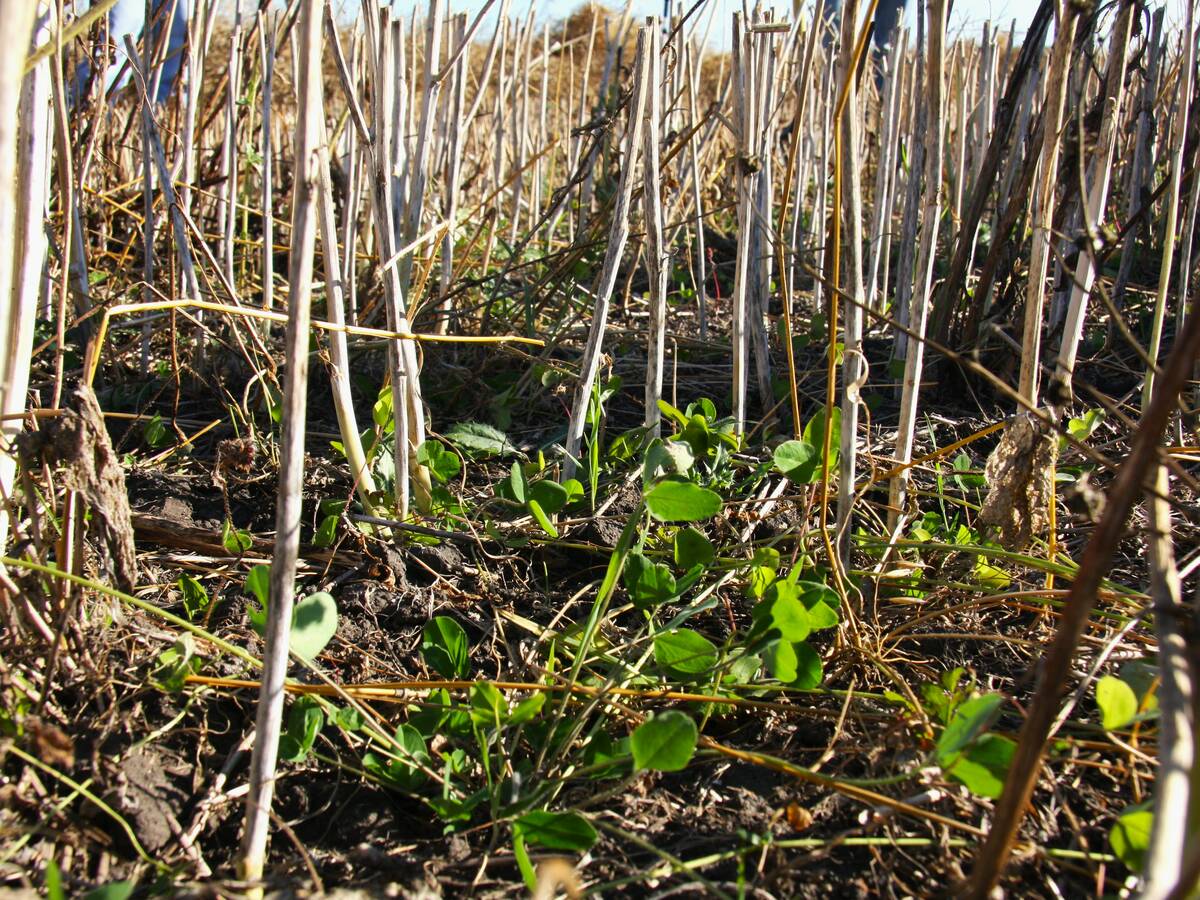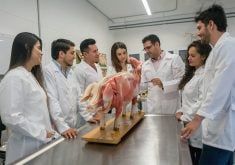ALTONA, B.C. – Grower Barb Giesbrecht fondly remembers how magical the orchards seemed when travelling to British Columbia’s Okanagan Valley as a child with her family.
Her husband, Tony, felt the same way, so it was no surprise that an orchard would be the focal point of the farm that the young couple chose to build in 2004.
Barb recalled them visiting a friend’s place and seeing a picture of a mechanical berry harvester.
“We looked at each other and knew this was what we wanted to do,” said Barb.
Read Also

Saskatchewan project sees intercrop, cover crop benefit
An Indigenous-led Living Lab has been researching regenerative techniques is encouraging producers to consider incorporating intercrops and cover crops with their rotations.
She spent a winter researching berry orchards, learning the basics and finding available equipment.
“We asked a lot of questions, do we really need irrigation, should we use plastic mulch,” she said.
The Giesbrechts purchased land in Altona, north of Fort St. John, B.C., sold their house in town and moved to the country with their five children.
By 2005, the Giesbrechts planted their first batch of saskatoon bushes. They planted 1,000 three-year-old trees without plastic mulch.
They spent the following summer weeding the initial rows and planting an additional 5,500 plants. The second planting consisted of single stemmed plugs, which were planted in plastic mulch using a mulch applicator borrowed from the Prairie Farm Rehabilitation Administration.
“Using the mulch was well worth it,” said Barb.
In addition to controlling weeds in the rows, the plastic mulch keeps the soil warmer, which promotes growth and helps retain moisture.
“After the second planting, we thought we would have a break for at least a year but, in the third year, we harvested 550 pounds per acre,” said Barb.
The bushes are too small to use a mechanical harvester, but they produced a healthy crop. Last year, the Giesbrechts harvested 5,000 pounds of berries in two days.
“This year, the weather was against us but we were still able to harvest 5,000 pounds,” she said.
The bushes are loaded with berries, which will be harvested as extra sweet juice berries or will sun dry naturally on the bush to be harvested and used as an alternative to raisins.
The Giesbrechts are working to develop their marketing. Initially, the harvested berries were sent to a commercial processor in Creston, B.C., but it is no longer in business.
Barb hopes to find a large buyer for the berries stored in a freezer facility in Edmonton.
“We have also been getting into value adding,” she said, citing a product line that includes jams, meat sauces, juice concentrate, candies, pie filling and baked pies. They also operate a U-pick.
Lots of plans
The Giesbrechts have other ideas, including adding to the existing water supply used for irrigation, expanding the orchard to 20 acres from the current 12, building an on-site certified cleaning facility and developing new value-added products.
The bushes are young so much of the work in the orchard must be done manually. Berries must be hand picked, pruning is a big job and irrigating is like “caring for a baby,” she said.
“We went into this blindly,” said Barb, who continues to learn through research, networking with other berry growers and by attending seminars such as the Pacific Agriculture Show in Abbotsford, B.C.
“We held our noses and jumped. We still don’t know everything we need to,” she said. “But it is fun, we love it and we can do it together.”














